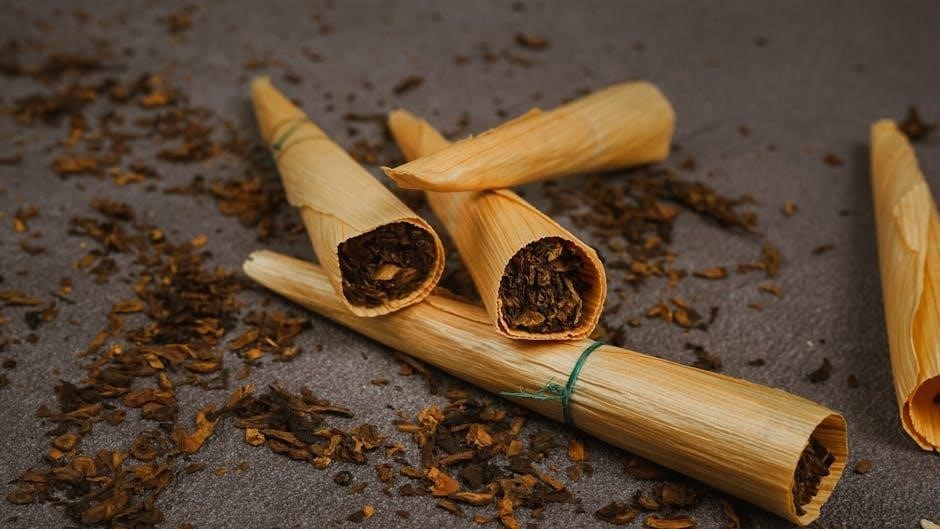Certain human foods‚ while harmless to us‚ can pose serious health risks to dogs due to their unique physiology. Chocolate‚ onions‚ garlic‚ grapes‚ and avocados are among the most common culprits. Even small amounts can trigger severe reactions‚ including vomiting‚ diarrhea‚ or life-threatening conditions like anemia or organ failure. Awareness is key to protecting your pet from accidental poisoning. Always research before sharing food and consult a vet if ingestion occurs.
Understanding the Risks of Human Foods to Canines
Dogs have unique metabolisms and digestive systems that differ significantly from humans‚ making certain foods inherently dangerous. While some human foods cause mild gastrointestinal upset‚ others can trigger severe reactions‚ including organ failure or even death. The severity of the reaction often depends on the type of food‚ the amount consumed‚ and the dog’s size and sensitivity. For example‚ substances like thiosulphate in onions and garlic can damage red blood cells‚ leading to anemia‚ while chocolate contains theobromine‚ which disrupts the nervous and cardiovascular systems. Even seemingly harmless foods‚ such as grapes or raisins‚ can cause sudden kidney failure in dogs. Awareness of these risks is crucial for pet owners to prevent accidental poisoning; By understanding how human foods interact with canine biology‚ owners can take proactive steps to safeguard their pets’ health and ensure a safe‚ toxin-free environment.

Common Toxic Foods for Dogs
Chocolate‚ onions‚ garlic‚ grapes‚ and raisins are among the most common toxic foods for dogs. Each contains specific compounds that can harm dogs‚ ranging from gastrointestinal distress to life-threatening conditions like organ failure.
Chocolate and Its Effects on Canine Health
Chocolate is highly toxic to dogs due to the presence of theobromine‚ a compound metabolized slowly in canines. Dark and baking chocolates contain higher concentrations of theobromine‚ posing greater risks. Ingestion can lead to vomiting‚ diarrhea‚ increased heart rate‚ and in severe cases‚ seizures or heart failure. The severity of symptoms depends on the type of chocolate‚ its quantity‚ and the dog’s size. Even small amounts can trigger mild to moderate reactions‚ while larger doses may be fatal. If you suspect your dog has consumed chocolate‚ immediate veterinary attention is crucial. The ASPCA Animal Poison Control Center also provides emergency guidance for such incidents. Always store chocolate out of your dog’s reach to prevent accidental ingestion and potential life-threatening consequences.
The Dangers of Onions and Garlic to Dogs
Onions and garlic belong to the Allium family and contain thiosulphate‚ a toxic compound that can severely harm dogs. When ingested‚ these substances damage red blood cells‚ leading to anemia and potentially life-threatening conditions. Even small amounts‚ whether raw‚ cooked‚ or powdered‚ can cause harm. The intensity of the reaction depends on the quantity consumed and the size of the dog. Symptoms may include vomiting‚ diarrhea‚ lethargy‚ and pale gums. In severe cases‚ internal damage can occur‚ requiring immediate veterinary intervention. It’s crucial to store onions and garlic out of your dog’s reach and avoid sharing any dishes containing these ingredients. Regularly monitoring your dog’s behavior and preventing access to toxic foods are essential steps in safeguarding their health and well-being. If you suspect your dog has ingested onions or garlic‚ contact your veterinarian or a pet poison hotline immediately for guidance.

Grapes and Raisins: A Hidden Threat
Grapes and raisins are among the most dangerous foods for dogs‚ yet their toxicity is not immediately obvious. Even small amounts can cause severe reactions‚ including kidney failure‚ which can be life-threatening. The exact compound responsible for the toxicity remains unknown‚ but it is clear that all forms of grapes—fresh‚ dried‚ or cooked—are hazardous. Symptoms of poisoning may include vomiting‚ diarrhea‚ lethargy‚ and a lack of appetite‚ progressing to more severe issues like dehydration and abdominal pain. In some cases‚ dogs may exhibit signs within hours of ingestion‚ making prompt veterinary care critical. It is essential to keep all grape products out of your dog’s reach and educate family members and guests about the risks. If you suspect your dog has consumed grapes or raisins‚ contact your veterinarian or a pet poison hotline immediately for urgent advice. Early treatment can significantly improve outcomes‚ but prevention remains the best approach to safeguarding your pet’s health.
Lesser-Known Toxic Foods
Some lesser-known toxic foods for dogs include moldy dairy products‚ certain nuts like walnuts‚ and fruit pits or seeds containing cyanide. These can cause severe health issues‚ including organ damage or neurological symptoms.
Nuts: Which Varieties Are Safe or Toxic

While some nuts are safe for dogs in moderation‚ others can be highly toxic. Peanuts and peanut butter are generally safe‚ but it’s crucial to ensure they are free from added salts‚ sugars‚ or xylitol. Macadamia nuts are particularly dangerous‚ as even small amounts can cause weakness‚ depression‚ and tremors in dogs. Walnuts and pecans are also harmful‚ as they can contain molds that produce toxins. Almonds and cashews are not toxic but can cause digestive issues if consumed in large quantities. Always avoid giving dogs moldy or rotten nuts‚ as they pose a higher risk of toxicity. Consulting a veterinarian before introducing nuts into your dog’s diet is essential to ensure their safety and well-being. Remember‚ even seemingly harmless nuts can lead to serious health complications if not properly managed.
Avocado: The Pitfalls of a Healthy Fruit
Avocados are a nutritious fruit for humans‚ but they pose potential risks to dogs. The primary concern is persin‚ a toxic compound found in all parts of the avocado‚ including the flesh‚ skin‚ pits‚ and leaves. While persin is harmful to many animals‚ dogs are less sensitive to it compared to birds or small mammals. However‚ consuming avocado can still cause mild to moderate symptoms in dogs‚ such as vomiting‚ diarrhea‚ and lethargy. The pit is particularly dangerous‚ as it can obstruct the digestive tract if swallowed. Additionally‚ avocados are high in fat‚ which can lead to pancreatitis‚ a painful and potentially life-threatening condition‚ especially in dogs prone to this issue. While an occasional‚ small amount of ripe avocado flesh is unlikely to cause severe harm‚ it’s best to avoid feeding it to your dog altogether to prevent any adverse effects.

Preventing Accidental Poisoning
Preventing accidental poisoning involves securing toxic substances and educating family members. Store harmful foods and medications out of reach‚ and avoid feeding table scraps. Regularly inspect your home for potential hazards to ensure your dog’s safety. Immediate veterinary contact is crucial if ingestion occurs. Awareness and proactive measures are key to protecting your pet from unintended harm.
Safe Treats for Dogs and How to Introduce Them
Introducing safe treats to your dog is essential for their well-being and happiness. Carrots‚ green beans‚ and apples (without seeds) are excellent options‚ as they are non-toxic and nutritious. Always introduce new treats gradually to monitor for any adverse reactions. Start with small portions to ensure your dog can tolerate the food. Avoid giving bones‚ as they can cause internal injuries. Plain‚ unseasoned yogurt and pumpkin are also safe and can aid digestion. When sharing human food‚ remove seeds‚ pits‚ and skins‚ as these can be harmful. Consult your veterinarian before making significant changes to your dog’s diet. Establishing a routine and sticking to dog-specific foods minimizes the risk of poisoning. Remember‚ even healthy treats should not exceed 10% of your dog’s daily calorie intake. By being mindful of what you share‚ you can keep your furry friend safe and happy.
